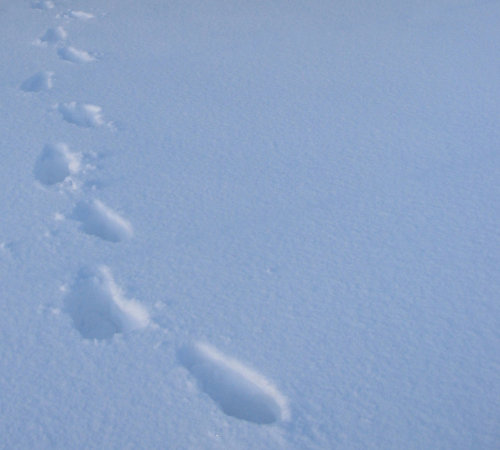
This is post #42 in our series on Tafseer of Juz ‘Amma (click the link to see all posts in this series).
In this post, insha’Allah we will take a whirlwind tour of the first third or so of Surah Naazi’aat, a great and powerful surah of the Qur’an. Then insha’Allah we will go back and dive into more details (particularly in the Arabic side of things).
Allah says:
وَالنَّازِعَاتِ غَرْقًا
وَالنَّاشِطَاتِ نَشْطًا
وَالسَّابِحَاتِ سَبْحًا
فَالسَّابِقَاتِ سَبْقًا
فَالْمُدَبِّرَاتِ أَمْرًا
Translation: By those [angels] who extract with violence, and [by] those who remove with ease, and [by] those who glide [as if] swimming, and those who race each other in a race, and those who arrange [each] matter, … [Surah Nazi’at, verses 1-5]
These ayaat describe attributes of angels:
- Ripping Out: Gharq (غَرْق) means to rip out, to yank out, to extract harshly. If you had a tree and you uprooted it, roots and all, that would be gharq. This refers to the angels who remove the souls of the corrupt and the evil-doers.
- Gently Pulling: Verse two contrasts verse one by mentioning nasht (نَشْط), which is like a gentle pulling. This refers to the angels that remove the souls of the righteous believers.
- Swimming: Verse three refers to angels who swim through the air; they are described as swimming.
- Racing: Verse four refers to angels who are racing; racing the souls of the righteous to Jannah.
- Al-Mudabiraat: Al-Mudabiraat are those angelswho settle the affairs of deen and dunya, in the dunya. They take care of floods, earthquakes, and other natural disasters, among other things. Their name, al-mudabiraat, also implies that they are thorough planners and executers of those plans.
All of these are aqsaam (oaths), which is typical in Mecci surahs. What is Allah (‘azza wa jal) swearing to?
يَوْمَ تَرْجُفُ الرَّاجِفَةُ
تَتْبَعُهَا الرَّادِفَةُ
قُلُوبٌ يَوْمَئِذٍ وَاجِفَةٌ
أَبْصَارُهَا خَاشِعَةٌ
Translation: On the Day the blast [of the Horn] will convulse [creation], there will follow it the subsequent [one]. Hearts, that Day, will tremble, their eyes humbled. [Surah An-Nazi’aat, ayahs 5-9]
Ayah six is the implied maqsoom alayhi (the thing being sworn to): that you will return to Us, and will have an exact recompense. It’s implied from this verse.
An interesting phrase is:
تَرْجُفُ الرَّاجِفَةُ
“Tarjifu raajifat” — the thing meant to rattle and shake (ar-rajifaat), shakes and rattles (tarjifu). In another verse, Allah says “tarjufu al-ardu wal-jibaalu” (the Earth and the mountains shake and rattle), so we know that’s what is being referred to.
But this profoundly points at the nature of the Earth and the mountains. Their end is to shake and rattle. And it’s an uncomfortable shaking, uncomfortable on those who are on the thing that shakes.
Verse seven says:
تَتْبَعُهَا الرَّادِفَةُ
“Tatba’u raadifah” (ar-raadifah follows it): raadifah is the guy who’s sitting in the back of your car. Whatever happens to you, happens to him. The ‘ulama agree that ar-raajifah, the first shaking, is because of the first trumpet when everything in existence dies; and ar-raadifah is from the second trumpet, the resurrection.
Verse eight talks about hearts will tremble (waajifah) and shake on that day. But Allah says quloob, some hearts. That means some hearts will be secure on that day; the hearts of those who will not have fear on the Day of Horror. And waajifah is a fearthat makes your heart pound. Fear of what their deeds will show.
In verse nine, Allah says:
أَبْصَارُهَا خَاشِعَةٌ
Khaashiyah is a fear that shows visibly on your face. And subhanallah, those people who did not pray and show khushoo’ to Allah in the dunya, will have no choice but to show it in the akhirah.
In the next three verses, Allah (‘azza wa jal) says:
يَقُولُونَ أَإِنَّا لَمَرْدُودُونَ فِي الْحَافِرَةِ
أَإِذَا كُنَّا عِظَامًا نَّخِرَةً
قَالُوا تِلْكَ إِذًا كَرَّةٌ خَاسِرَةٌ
Translation: They are [presently] saying, “Will we indeed be returned to [our] former state [of life]? Even if we should be decayed bones? They say, “That, then, would be a losing return.”
This is a mocking statement of people who denied the ressurection. Marduwdoona means to walk back exactly in your steps; imagine if you walk through fresh snow, leaving tracks. Marduwdoona would mean to march back across those same exact steps.
Just like the way we were created, we will be recreated.
Verse 12 is almost a sarcastic mockery — “in that case, we’re going to be in big trouble!” It’s not a statement of sincerity, but one of ridicule.
As if in answer to them, Allah (‘azza wa jal) then says:
فَإِنَّمَا هِيَ زَجْرَةٌ وَاحِدَةٌ
فَإِذَا هُم بِالسَّاهِرَةِ
Translation: Indeed, it will be but one shout, and suddenly they will be [alert] upon the earth’s surface. [Surah An-Naziat, verses 13-14]
These ayahs need no explanation. The trumpet will be blown, twice (or thrice), and then we will all find ourselves back to life, waiting for reckoning.
These are ayahs for us to think on and contemplate. The Day of Resurrection is coming. Soon. It’s as close as your own grave; don’t be like those who deny it, or procrastinate preparing for it. Prepare now. (An easy way to do so is share bits of this tafseer with someone you know — a friend, or family member.)
May Allah, Al-Aleem, give us the tawfeeq to learn and implement these ayaat in our lives, ameen!!
References:
- Touched by an Angel: Tafseer of Juz ‘Amma. By Muhammad Alshareef. 2009.
- Tafseer of Surah At-Takwir. By Nouman Ali Khan – Bayyinah Institute.